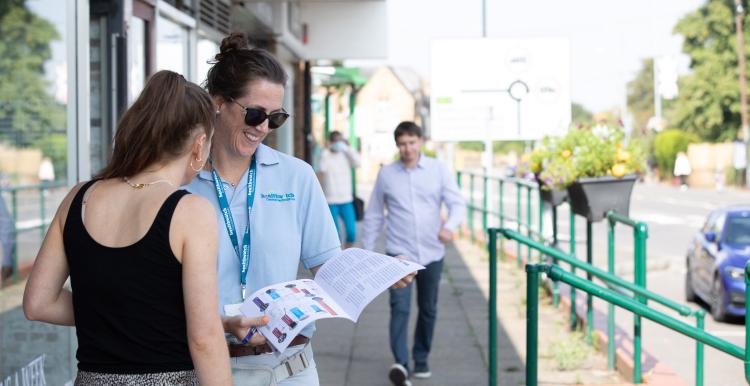Good practice in managing your information and signposting service

You all provide an information and signposting service, as it is a statutory function. These differ in scope and scale due to local commissioning arrangements, but you told us that many of you have seen an increase in complex calls since the pandemic and many are now facing the challenge of providing the service from home.
You also told us there can be a need for more clarity on the role of Healthwatch and the remit of the information and signposting service with the public, commissioners and sometimes within Healthwatch themselves. We also know that due to high levels of commitment, some staff feel they go above and beyond due to a lack of alternative sources of help.
We met with 14 people who either manage or deliver Healthwatch information and signposting service across 12 different Healthwatch to find out how they address the current challenges and see if we could identify some good practices and principles. Above all, we urge you to be clear about your service and remit with your teams, board, commissioners, and the public.
What can I do to meet these challenges?
Read on for a summary of their ideas and suggestions to help you manage your own information and signposting service. It isn’t guidance but could be a useful conversation starter in your teams.
Your good practice checklist
- Update your home working policy to include regular contact with colleagues and the manager and try to schedule annual leave to ensure one person is not covering the service alone.
- Include out-of-office voicemail and e-mail auto-responder messages with clear guidance on opening hours, how long it will take to get a response, useful numbers, and local information.
- Include information and signposting as an agenda item in your regular team meetings to allow people to discuss calls and get advice and support from colleagues.
- Build relationships with the Integrated Care Board and health and social care partners to understand local support options and agree on circumstances when you can make escalations and referrals.
- Ensure you have the right level of insurance for the level of service you deliver.
- Join or set up local information and advice hubs where queries can be handled by the most appropriate organisation so that callers are not given more numbers to call.
- Create a clear information and advice section on your website. Include details of local organisations, the support they provide, and frequently requested information such as how to register with a GP, make a complaint and access emergency dental care. Check out our website for up-to-date advice content you can localise for your own website.
- Include a clear section on your website covering what you offer but also what you don’t do to help manage expectations.
- Agree on the number of calls that are reasonable to take in a day and develop a process to prioritise these so that staff wellbeing can be looked after. Decide how to set the phone system to deal with out-of-hours calls and if you have the capacity to respond to the number of voicemail messages that are left (i.e. in effect, provide a 24-hour service)
- Consider if there are supporting roles that would allow volunteers to contribute to the information and signposting service.
- Work with local voluntary and community sector partners to share insight into needs that are not being met and the impact on local people. Make the case for funding an enhanced service over and above traditional ‘information and signposting’.
- Consider working towards becoming a 'Trauma Informed Organisation', which includes include incorporating the principles into all staff policies from induction and training and ongoing support for staff.
- Update your call-handling process to give clear guidance on ending calls if a person becomes aggressive. Include a structure to end calls where there is no solution and a debrief process to support call handlers.
- Access dedicated support that is available for information and signposting staff. This includes:
- How to structure a call webinar
- Handling challenging calls webinar
- Assessing safeguarding and risk webinar (for I&S staff)
- Call handling guides
- Listening skills webinar
- Personal resilience and wellbeing webinar
Want more help managing difficult calls?
Having a clear call handling process is essential so your staff know how to structure a conversation, how to manage difficult calls and how to assess safeguarding and risks.
Our guidance can help you manage your calls from the public, know how to deal with repeat callers and ensure your staff know the process of what they can do if a caller becomes aggressive or abusive.
